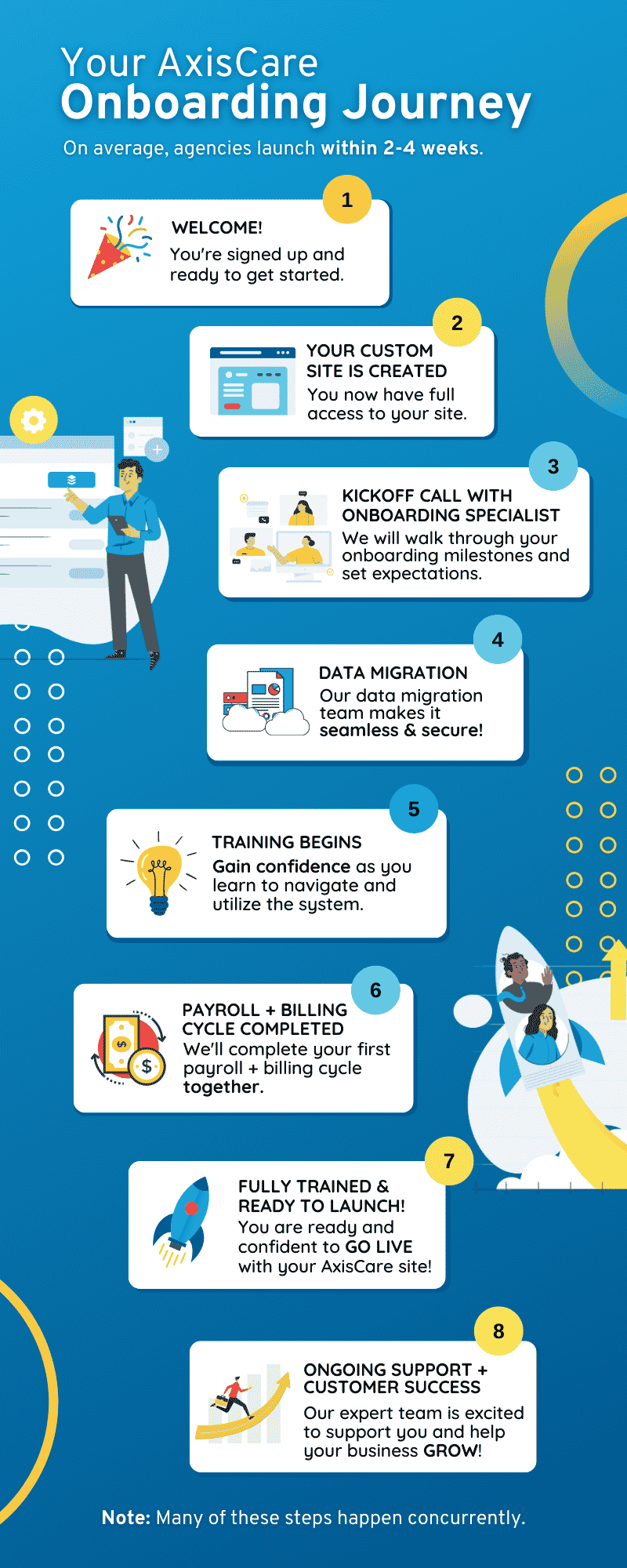IDD documentation is the foundation that upholds agencies’ operational excellence. When done right, it clearly communicates each individual’s needs and goals, ensuring their entire support team can deliver consistent, well-coordinated, person-centered care. It also keeps agencies and staff on top of compliance standards, including privacy and reporting frameworks established by federal and state-level legislators.
IDD software stores all of these records in a single digital hub, giving agencies direct and uninterrupted access to essential resources. This guide will run through the essential documents, organization tips, and best practices agencies need to seamlessly manage their IDD documentation – and how technology fits in at every level.
Understanding the Key IDD Documents Required
Individuals must undergo an official evaluation process to determine whether they qualify for support due to a developmental or intellectual disability. Generally, the most recent update to the individual’s documentation should be within the last five years. The following documents are required to detail their circumstances and prove their eligibility:
- Identifying information: The case manager will need to include identifying information about the individual, such as name, diagnosis, and birthdate of the individual being assessed, to confirm eligibility for certain programs.
- History: Include the individual’s medical history, diagnosis, education, and family history, as well as when they first started presenting signs of a disability (many IDD programs require that the onset be before the age of 18). Any relevant medical events, medications, and side effects should also be included.
- Progress notes: Include a comprehensive history of the ongoing support and interventions received by the individual, as well as the observed outcomes. This is meant to demonstrate the individual’s needs and progress over time.
- Psychological assessments: These cognitive evaluations confirm the presence of intellectual and/or developmental disabilities and identify the individual’s areas of greatest need. The results are initially used to verify eligibility, then to guide individualized service plans and set realistic goals.
- Proof of residency: The individual must live within the service area or state jurisdiction to maintain compliance.
Progress Notes & Daily Service Logs
Progress notes serve as an official record of services delivered during each appointment. They help agencies track how each individual’s goals and outcomes evolve over time and are required by most state programs to secure certain types of funding.
Each progress note captures essential details like the type of support provided (personal care, skill-building, community integration, behavioral support, etc.), how the individual responded to the service (successes, challenges, etc.), any incidents or changes in behavior, and any concerns that might require a follow-up.
Psychological Assessments & Diagnostic Reports
For individuals with IDD, eligibility usually needs to be proven through formal documentation that is put together by a licensed physician and/or psychologist. To be accepted by most state or federal programs, the assessment generally includes, but is not limited to:
- Cognition: Cognitive function tests that measure the level of intellectual ability, strengths, and vulnerabilities of the individual.
- Adaptive behavior: A skills evaluation detailing how the individual manages daily tasks, socializes, communicates, and administers self-care.
- Neuropsychological: For conditions affecting thinking and memory, such as dementia, stroke, brain injury, or genetic disorders like Down syndrome.
- Personality & Psychiatric: To support mental health assessments, including testing for depression, anxiety, or hyperactivity.
- Developmental history: Documentation of early onset stating that the disability originated before adulthood.
To request an IDD assessment, families or agencies must contact a licensed psychologist who specializes in developmental evaluations. In some cases, schools, pediatricians, or government agencies can help coordinate the process.
Once the testing documents have been finalized, they will need to be stored securely to prevent unauthorized access. These assessments will need to be updated every three to five years (or at another interval required by the specific state) to reflect the individual’s current life situation and verify eligibility for certain state programs and Medicaid services.
Alternatives to Using the Original Documents
If the original copies of the above documents are unavailable, state and/or government entities can usually reissue birth certificates and official identification documents. Schools, hospitals, or physicians also typically store copies of evaluations or treatment notes. Instead of official documentation, some IDD programs will accept sworn statements or secondary documents if primary copies are unavailable.
If you can’t locate a specific document, contact a program intake coordinator as soon as possible. They can advise on accepted alternatives and help avoid delays in the process.
Strategies for Organizing & Storing IDD Documentation
IDD software is a great way to centralize documentation in an accessible digital hub, but that doesn’t mean hard-copy paperwork must be eliminated. If you follow best practices for both formats, you’ll have a functional document management system that respects all necessary compliance standards.
To comply with HIPAA and regulatory standards, physical records should be securely locked inside cabinets and accessible only to authorized staff.. Similarly, digital records should be protected and encrypted with a password. To simplify the search process within these systems, use consistent file and folder naming conventions that are standardized company-wide. It’s also a good idea to separate documents by category (assessments, progress notes, consent forms, etc.) and create tags for faster querying.
From logging visit details to billing various payers, remaining compliant with federal, state, and local regulations is a must. These laws evolve frequently and must be followed to the letter; IDD software is an invaluable asset that will automatically update protocols as necessary and reduce the risk of errors that can delay the reimbursement process.
Digital Document Management Systems
Using the right technology for your records makes it easy to find and secure documentation that is accessed regularly. Cloud or server-based records can also be backed up automatically, protecting them from loss due to fire, flood, or misplacement. Backups also make it simple to restore files in case they’re accidentally deleted or corrupted.
A few different structures help agencies keep their digital documentation organized and easily managed. Administrators may assign each client their own folder, then create sub-folders for information like care notes and assessments. It’s also an option to create separate folders for categories like progress notes, medical records, and HR files. Filing by date is ideal for records that are updated with lots of information on a daily basis, such as visit logs, to locate time-sensitive information easily.
Training Staff & Families for Effective Documentation
Digital documentation is only effective if everyone involved understands the “why” and “how” behind each process. Agency staff and authorized family members should be trained on navigating the documentation system and maintaining accurate and private records.
Checklists and templates are an easy way to standardize information, ensure all required details are logged, and keep data consistent from when it’s captured to when it’s billed. As software features and internal policies change, hold refresher sessions or send out memos to keep all parties on the same page. Of course, agencies don’t need to walk these paths alone: if at any point they require guidance on new compliance standards or a new feature, your chosen IDD software should be backed by a team of support experts who are ready and able to help.
Regular Review & Updates of IDD Documents
Digital records are only as valuable as their accuracy, so agencies should institute periodic document reviews. The ideal cadence is at least once a year, but certain files may require more frequent reviews if an individual’s life circumstances change.
ISP meetings are a good time to schedule these reviews in a way that involves the individual. They present a structured opportunity to assess goals, evaluate progress, and adjust supports in a familiar framework where individuals are more likely to feel comfortable expressing themselves.
Keep on top of IDD Documentation With AxisCare
Between appointments, progress notes, assessments, and ongoing updates, IDD agencies have no shortage of documents to manage. AxisCare is designed to keep everything organized, compliant, and secure, so you can streamline operations and give your team the tools they need to succeed. Request a free live demo to find out how.









